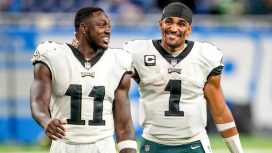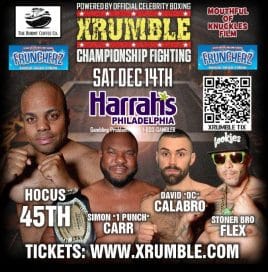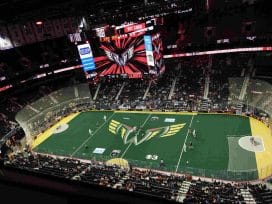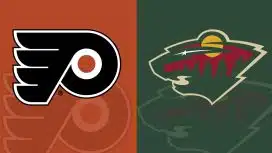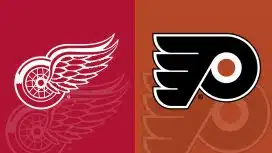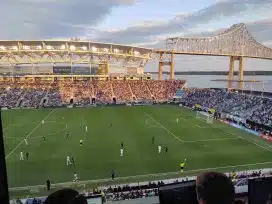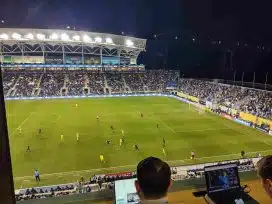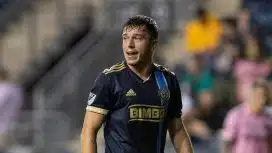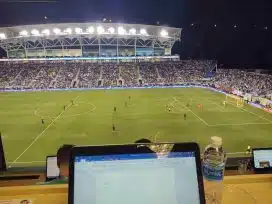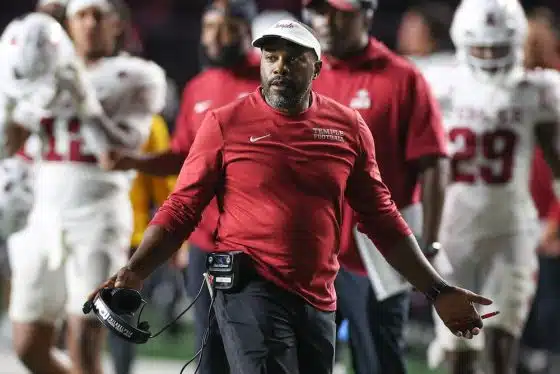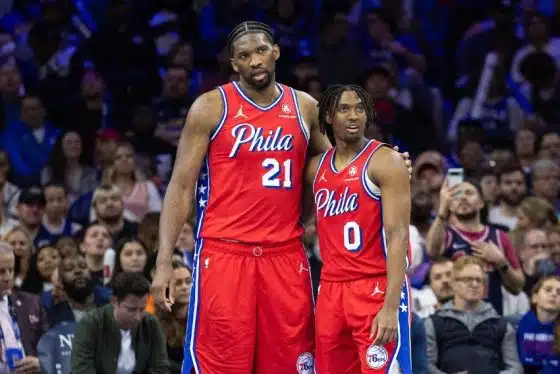Phillies
Phillies Firsts: Radio! Lights! Facebook?
By Matt Albertson, Historical Columnist
Philadelphia is recognized as being first in a lot of things while it's National League franchise has little experience in firsts. Nevertheless, the Phillies were a part of history when in 1921 the Phillies played the Pirates at Forbes Field in the first ever MLB radio broadcast. The team again made history on May 24, 1935 in Cincinnati when they played the Reds in the first major league night game. On Wednesday April 4, 2018, in another first, the club played the New York Mets in New York in an exclusive Facebook Watch broadcast, a video platform that the social media giant launched last August. MLB produced the game with Scott Braun as the play-by-play person along with analysts Cliff Floyd and John Kruk. But this wasn't your grandfather's TV broadcast! Fans were able to interact with the hosts throughout the game via Facebook. The Wednesday matinee was the first of 25 games that will air exclusively on Facebook.
The Phillies will appear on Facebook exclusive broadcasts three times this season, April 4 against New York, April 26 against Arizona, and May 10 against San Francisco.
Radio was in its infancy in 1921 and its commercial value had yet to be tapped into. After World War I ended in 1917, radio was primarily used as a point-to-point communication technology. Amateurs interested in the technology experimented with radio broadcasting while larger corporations such as General Electric and Westinghouse did the same. KDKA, a Pittsburgh radio station owned by Westinghouse was the first to broadcast a major league baseball game. On August 5, 1921, a Westinghouse rate foreman and night time station announcer named Harold Arlin rigged a crude broadcasting setup behind home plate at Forbes field, converting a telephone as a microphone which was connected to a transmitter. Arlin explained in a later interview that baseball seemed like a natural fit for the new medium. Things we take for granted today were not obvious to Arlin that afternoon at Forbes Field, such as talking between pitches. The transmitter didn't work sometimes while crowd noise drowned out his voice on occasion. "We didn't know whether we'd talk into a total vacuum or whether somebody would hear us."
Some owners feared the idea of broadcasting baseball games on the radio. They thought that people wouldn't find the need to go to the ballpark if they could hear the game for free in the comfort of their own homes. But the broadcast, which Arlin thought would be just a "one-off" experiment, was heard by many and soon radio's were flying of store shelves in Pittsburgh. Caught up in the throes of the game on radio, fans flocked to Forbes Field, too.
The Phillies lost to the Pirates that day 8-5.
Fourteen years later, the Phillies again participated in a historic event, this time at Cincinnati's Crosley Field on May 24, 1935. Between 1929 and 1934, the Reds and Phillies had shared occupancy in the National League cellar. The Great Depression shocked the baseball world and put many owners on the financial ropes. The market crash wiped out Reds owner Sidney Weil's finances and he was forced to sell the team to the bank, the Central Trust Company. The company needed to find a buyer and fast and they did in the form of Larry MacPhail, the grandfather of current Phillies President Andy MacPhail.
MacPhail was a cavalier personality and an excellent marketer along the lines of Bill Veeck. For example, while in Europe as an Army Captain in 1918, MacPhail and a five others set out to capture the former German Emperor Wilhelm II who was in hiding in the neutral Netherlands. Their goal was to put Wilhelm on trial for war crimes. In his book Lights On! The Wild CenturypLong Saga of Night Baseball, former SABR President David Pietrusza detailed the party's escapade. "The party crossed the Dutch frontier and got as far as the front parlor of Wilhelm's residence-in-exile at Amerongen. Captain MacPhail swiped an ashtray with the Hohenzollern monogram engraved it it, but the raiding party beat a hasty retreat once they realized that they now faced capture themselves by an agitated detachment of Dutch cavalry."
MacPhail purchased the beleaguered Columbus Sentaors of the minor league American Association for $100,000 and increased attendance each year, making the club the only financial success in the league. Despite outdrawing the parent club St. Louis Cardinals in 1931, MacPhail was fired in 1933 for what the club deemed wasteful spending, including spending too much on office furnishings. This made him available to take over the Reds. Upon taking over the Reds, MacPhail embarked on a plan to overcome major league baseball's ban on holding night games, a practice that was ongoing in the minor leagues. It took the magnate three hours to convince Commissioner Landis and the other owners that hosting a night game was in the financial best interest of the Reds.
After more deliberation with the league and other owners, MacPhail and the Reds pressed on with what everyone knew was far from a guaranteed success. According to Pietrusza, General Electric installed 614 1,500 watt lamps in 8 13-foot towers at Crosley field. Each lamp (or bulb) was 44 inches in diameter. The project cost the Reds $62,000 to cover the field in 1 million watts and 13,815,000 lumens(!) of incandescent artificial illumination. Unlike the minor league installations, the lighting at Crosley Field covered equally in 70 footcandles of light. Impressive for the era.
The Reds invited the Phillies to practice for an hour under the lights to get used to the artificial illumination but they declined. Player-Manager Jimmie Wilson was quoted as saying "It has been my experience with night baseball that after playing a game under light the muscles of the players are stiff the next day."
Pietrusza notes that typical weekday attendance to a Reds home game was 1,500 but the night game sold out (approximately 25,000 people packed into Crosley Field). President Franklin Roosevelt turned the power on at the stadium from the White House thanks to a special set up and the 614 1,500 watt lamps turned night into day. Reds radio announcer recalled later that there weren't any shadows that night, the lights were perfect.
As for the game, the Phils lost to the Reds 2-1 in what turned out to be a typical game without any issues, errors or major injuries like some predicted prior to the contest. Commissioner Landis was unable to attend and the only owners in attendance were MacPhail and Phillies owner Gerry Nugent. George Wright, of the legendary 1869 Cincinnati Red Stockings and brother of former Phillies manager Harry Wright, was invited but unable to attend due to poor health.
The Phillies participated in two major baseball firsts and on Wednesday April 5, 2018 participated in another, the first exclusive baseball broadcast on the social media titan, Facebook. Many fans lamented the exclusivity of the broadcast, often citing the assumed core age group of baseball fans (40-60 years old) and that demographic's possible difficulty in viewing the contest. Despite a lengthy rain delay, the game was completed and I was personally impressed with how the broadcast was done. To me, the best aspect was the absence of commercials which made me feel more invested in the game and delivered the feeling that the viewer was actually at the ballpark. The absence also created the illusion that the game was moving at a faster pace, which is one of the most critical issues facing major league baseball's popularity with the under 30 demographic. Interviews were conducted with Mets and Phillies beat writers who answered fan questions asked directly from Facebook. Players' Instagram usernames flashed across the screen when they were at bat. The overall experience was interesting and I'm not opposed to watching it again.
Radio broadcasts and night baseball became the norm for baseball fans from their inception through the present. Will baseball broadcasts on social media become another norm? I doubt it but I believe it's an opportunity that should be presented as another option – not an exclusive one – for the fans seeking a different experience.
Oh, and like the first radio broadcast game and first night game, the Phils lost the first Facebook exclusive broadcast. There's something to be said for consistency.
